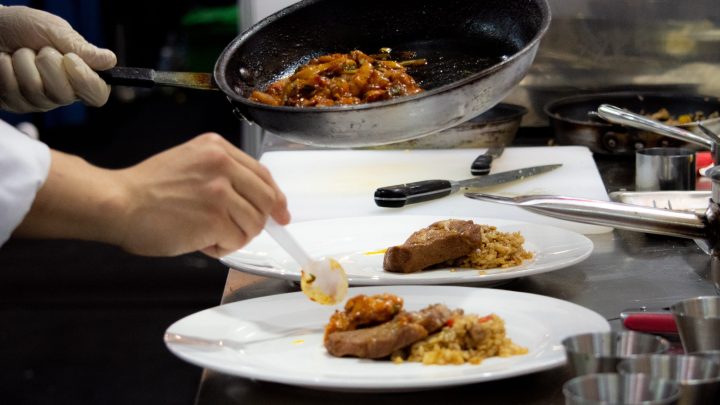
Half a steak and a straight tequila: how restaurant-goers economize
Half a steak and a straight tequila: how restaurant-goers economize

Going to restaurants has become more expensive. Prices for food away from home were up 5.4% in October from the same month last year. That’s actually the lowest increase in about two years, but it’s still pretty high. And consumers, well, you might say they’re adjusting.
In the final Beige Book of 2023, which came out last week, the Federal Reserve Bank of Kansas City pointed out that restaurateurs in its district said their revenue fell as more customers avoided expensive items and split dishes.
Lonnie Golden loves going splitsies at restaurants.
“And I know that that’s not a view that’s shared by everybody you go out with, so you feel this out first. You say, ‘Hey, who wants to share? Who wants to split?'” he said.
Golden, an economics professor at Penn State Abington, lives just outside Philadelphia. But he took his partner out for a nice dinner in New York City on Sunday night and said the prices gave him sticker shock. So they didn’t order entrees but shared a few small plates, like scallops and mussels.
There were still leftovers.
“Brought the mussels back with us on New Jersey Transit. We’ll see if they survived in their original state,” he said.
To maybe avoid lugging seafood on public transit, Golden said it might make sense if restaurants were just more upfront about portion sizes — especially now that sharing is more in vogue.
At Mac’s Seafood, which has multiple locations on Cape Cod, owner Mac Hay said they used to charge a share fee if people split an entree. But that made customers grumpy.
So, now they’ll just bring out a second plate.
“Because it’s more inconvenient for the kitchen to try to portion things in half,” he said. “And frankly, it doesn’t look good when you usually cut your entrees in half.”
Hay said customers are also looking for value in other ways, gravitating toward specials like “all-you-can-eat fish and chips.”
He said this cuts into what his restaurants earn. “But we hope if they’re coming in for the fish and chips that they’re going to, you know, buy a cocktail with that,” he said.
And drinking is something people don’t stop doing when they’re worried about the economy.
“People eat a little bit less and they drink a little bit more, and the way that they drink changes,” said Adam Halberg, CEO of Barcelona Wine Bar, which has locations around the country.
He said they’re selling fewer bottles of wine, but more sangria, which is the least-expensive alcoholic drink on the menu.
They’re also selling fewer cocktails and more hard alcohol, like tequila and gin.
“Cocktails are viewed as maybe a little bit more luxury than somebody who just wants something that is, uh, quicker and more effective, and you don’t have to drink as many of them,” he said.
Essentially, giving you more alcoholic bang for your literal buck.
There’s a lot happening in the world. Through it all, Marketplace is here for you.
You rely on Marketplace to break down the world’s events and tell you how it affects you in a fact-based, approachable way. We rely on your financial support to keep making that possible.
Your donation today powers the independent journalism that you rely on. For just $5/month, you can help sustain Marketplace so we can keep reporting on the things that matter to you.











